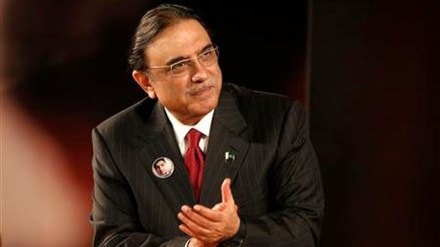Pakistan’s Prime Minister Shehbaz Sharif has asserted that Asif Ali Zardari is all set to be elected as the next President of the country, ARY News reported.
Former Pakistan President and Pakistan People’s Party (PPP) Co-chairman Asif Zardari will be the candidate of the allied parties in the presidential election which will take place tomorrow (March 9). As per the media reports, the former Pakistan president is almost certain to bag the top constitutional post again after nearly 11 years.
While speaking at a dinner hosted in honour of the allied parties’ leaders, Shehbaz Sharif said the coalition government secured two-thirds of the votes in the recent general elections and it would be reflected during the presidential election, he added.
In his remarks, Asif Ali Zardari pledged to work with Prime Minister Shehbaz Sharif to solve the country’s problems. He underlined that substantial advancements in agriculture might substantially mitigate Pakistan’s issues, reported ARY News.
MQM-P extends support to Asif Ali Zardari
The Muttahida Qaumi Movement-Pakistan (MQM-P) has also extended its support for Asif Ali Zardari in the forthcoming presidential elections, Pakistan-based news channel ARY News reported.
The announcement was made during a joint presser in Islamabad by PPP Chairman Bilawal Bhutto Zardari and MQM-P Convener Khalid Maqbool Siddiqui on Thursday.
“We will resolve the issues of Karachi with joint efforts. Asif Ali Zardari as a President will take every possible measure for Karachi. We will also take steps at the local level,” Bilawal was quoted as saying.
Pakistan’s economic woes
Expressing concerns over the economy’s poor indicators, Shehbaz Sharif said that the circular debt related to gas and electricity amounts to Rs 5 trillion. In a similar vein, Pakistan International Airlines owes Rs 825 billion and electricity theft has reached Rs 500 billion,, according to ARY News.
He also stated that he wished to increase the country’s tax base to alleviate the problem of economic hardship, pointing out that Pakistan had a far lower tax-to-GDP ratio than its neighbors.
